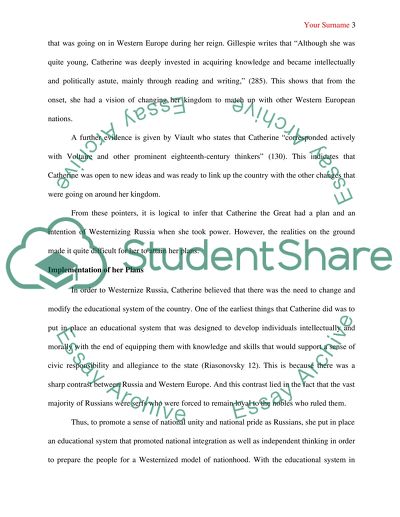Cite this document
(“Catherine the Great in Russian History Essay Example | Topics and Well Written Essays - 1250 words”, n.d.)
Retrieved from https://studentshare.org/history/1459037-westernization-of-russia-under-catherine-the-great
Retrieved from https://studentshare.org/history/1459037-westernization-of-russia-under-catherine-the-great
(Catherine the Great in Russian History Essay Example | Topics and Well Written Essays - 1250 Words)
https://studentshare.org/history/1459037-westernization-of-russia-under-catherine-the-great.
https://studentshare.org/history/1459037-westernization-of-russia-under-catherine-the-great.
“Catherine the Great in Russian History Essay Example | Topics and Well Written Essays - 1250 Words”, n.d. https://studentshare.org/history/1459037-westernization-of-russia-under-catherine-the-great.


